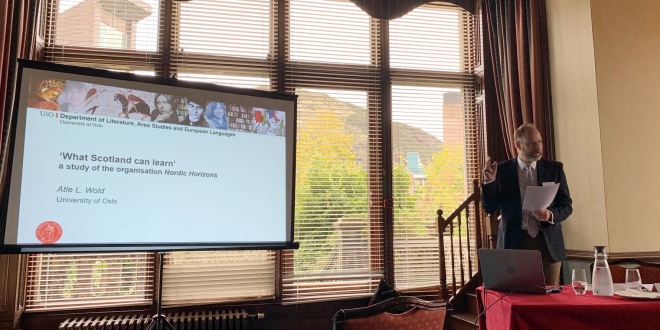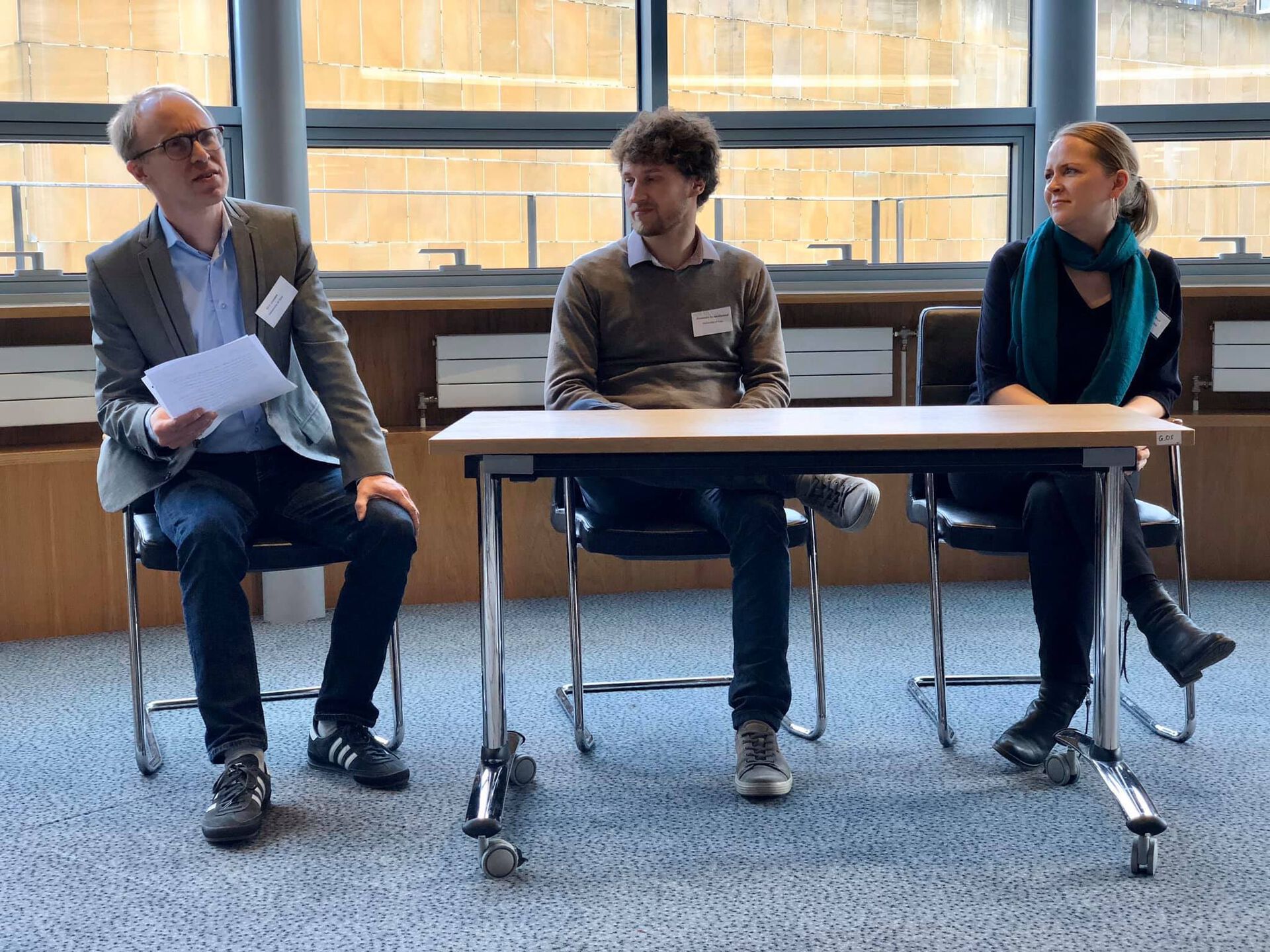Atle Wold discusses the Nordic model as branding tool, and how perceptions of the Nordic region abroad reflect countries' domestic concerns.

Associate Professor Atle Wold presented his research at the conference "Nordic Branding and the Reception of the Nordic Model Abroad" i Edinburgh. Foto: Wold
- When I lived in Scotland almost twenty years ago no one cared that I was Norwegian, but now they're very interested. This Scottish idea that "we're a bit Nordic, we're kind of like you" has become much more prevalent in the public discourse in recent years.
This is how Atle Wold, associate professor of British studies at the Department of Literature, Area Studies and European Languages, describes his own experience with Scotland's interest in the Nordic region. Wold recently co-organized the conference "Nordic Branding and the Reception of the Nordic Model Abroad" in Edinburgh. He is also one of the leaders of the research project EURONOR: The Nordic Model in a Europeanised Context, which studies perceptions of the Nordic model in other European countries, primarily Scotland and France.
The two-day conference was held in late October, and covered topics ranging from political discourse to Nordic Noir, with particular emphasis on perceptions and uses of the Nordic model in Scotland and France, but also representation of the Nordic region in Québec, and the relationship between company names and a potential "Scandinavian colony" in Spain.
An insider observing an outsider observing us
Wold occupies the curious position of being a Norwegian working in Norway researching Scottish perceptions of the Nordic region:
- It is fascinating to be an insider observing an outsider observing us, he says.
- I sometimes have the advantage of easily spotting misconceptions, or the way in which they pick success stories and neglect to mention the things that don't work that well. The Scottish debate is marked by a rose-tinted view of the Nordic region, which might make us smile a little.
EURONOR researches how the Nordic model is perceived abroad and whether said perceptions reflect the actual development in the Nordic region. Wold repeatedly emphasizes individual countries' tendency to pick and choose elements that fit their particular concerns and ignore what seems less relevant:
- Countries who look to the Nordic region focus on the things that fit what they care about. In Scotland the emphasis is typically on things like equality and distribution of property, whereas in France they have also been interested in the low levels of corruption the characterizes Nordic politics, a topic which is absent from the Scottish debate. There is also a tendency to look towards specific countries. Scotland focuses primarily on Norway, while France looks to Sweden. For the Scottish National Party (SNP) it is also about signaling a distance from England, creating a barrier by presenting Scotland as more Nordic than British.
Cherry-picking tendencies
The conference shed light on this cherry-picking tendency:
- Perceptions of the Nordic region reflect domestic concerns. What a particular country looks for and sees in the Nordic model relates to the problems they are trying to solve at home. There's a tendency towards tunnel vision, to be very concerned with what is relevant for one's own country and think that that is exactly what the Nordic model is about.
But Wold questions whether the approach is feasible:
- Foreign interest in the Nordic region tends to see us as something markedly different, and the perception is either utopic or dystopic. It har become clear that although there are some who have negative views of the Nordic region, positive perceptions dominate. We have to ask whether it is possible to select only certain elements of Nordic politics and make that work, or if it is necessary to adopt the Nordic model more broadly.
Branding
The Nordic model's branding function was also a central topic at the conference:

- The Nordic model is a powerful brand, and there is an idea that if something is Nordic it must be good. Associate Professor Kjerstin Aukrust from the UiO discussed how Emmanuel Macron wanted to introduce the Danish system of flexicurity in France, when this is in fact a Dutch concept originally. This illustrates how branding something as "Nordic" can be a strong argument in and of itself. At the conference we saw various ways in which the Nordic region is a strong brand.
The road ahead
In conclusion, Wold shares some thoughts on the research road ahead:

- We assume that the interest in the Nordic model in Scotland has been driven by the SNP, who have focused on the Nordic region since the 1970s, and Ph.D. candidate Laila Berg's research of popular perceptions of the Nordic countries in Scotland demonstrates that many Scottish people have now adopted the SNP's "story of the Nordic region." For the future, I would like to delve more deeply into the question of how the interest in the Nordic region arose in Scotland, and to what extent it was brought about by the SNP.






